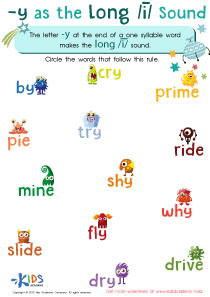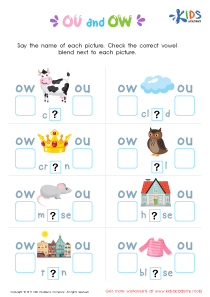Reading comprehension Normal Long Vowels Worksheets for 4-Year-Olds
4 filtered results
-
From - To
Explore our engaging Reading Comprehension Worksheets designed for 4-year-olds, focusing on normal long vowels. These worksheets nurture early literacy skills while introducing children to vowel sounds in a fun and interactive way. Each activity is specifically crafted to enhance comprehension through colorful illustrations and relatable stories that captivate young learners. As children practice identifying and understanding long vowels, they develop critical reading skills that lay the foundation for future learning. Perfect for both home and classroom use, our worksheets encourage creativity and exploration, making reading an enjoyable adventure. Start your child's literacy journey today with our vibrant, thoughtfully designed worksheets!
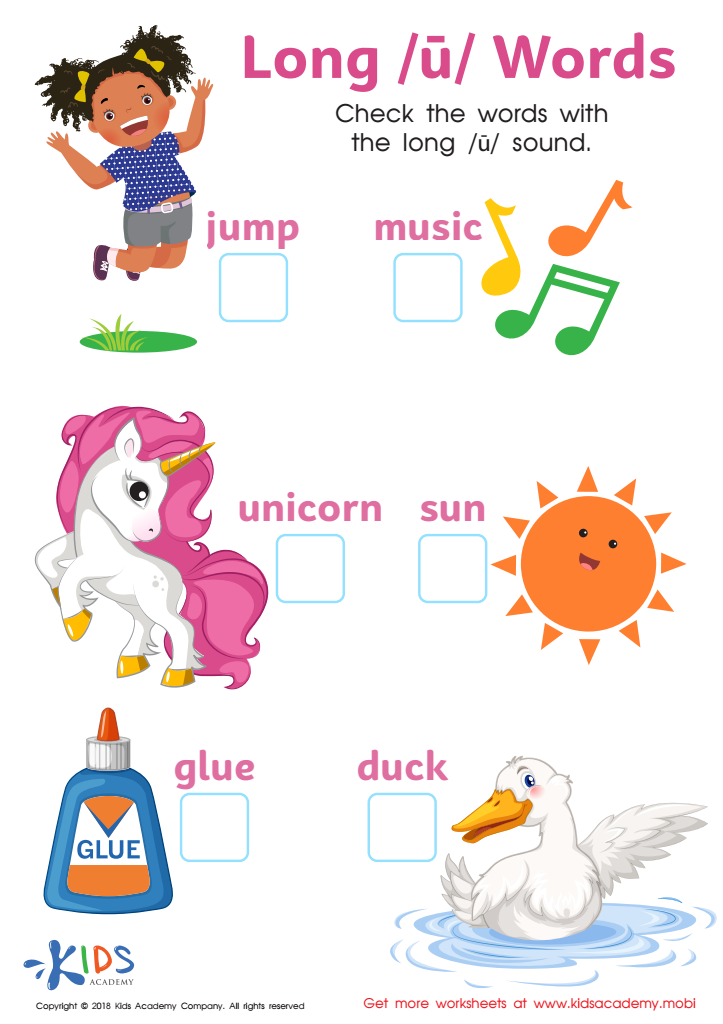

Long U Words Reading Worksheet
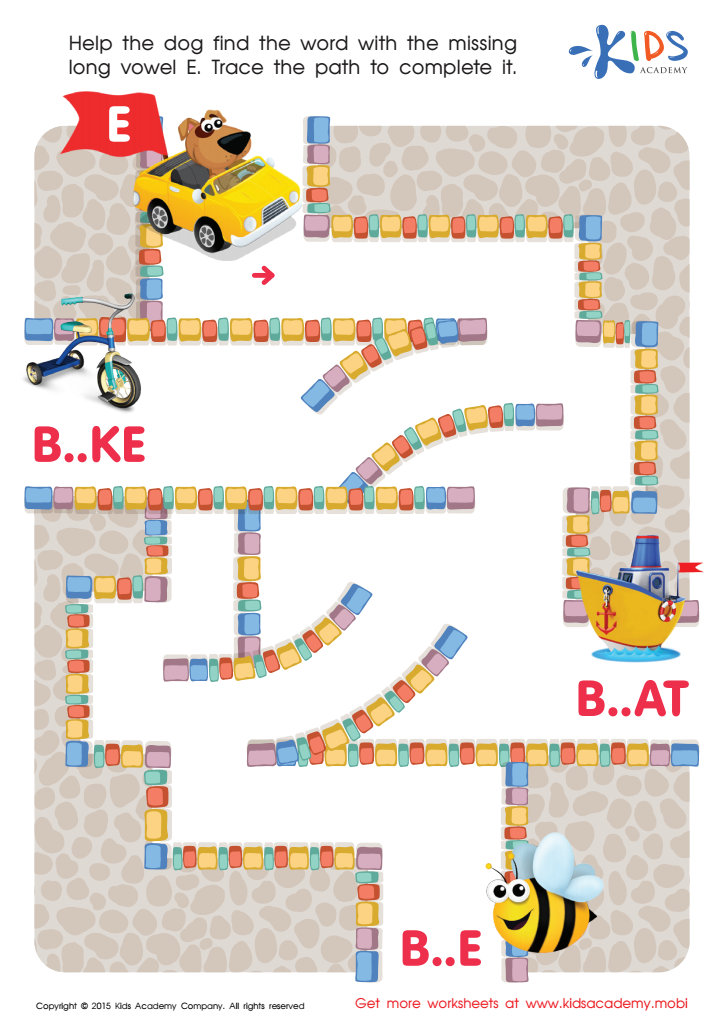

Long Vowel Sound E Worksheet
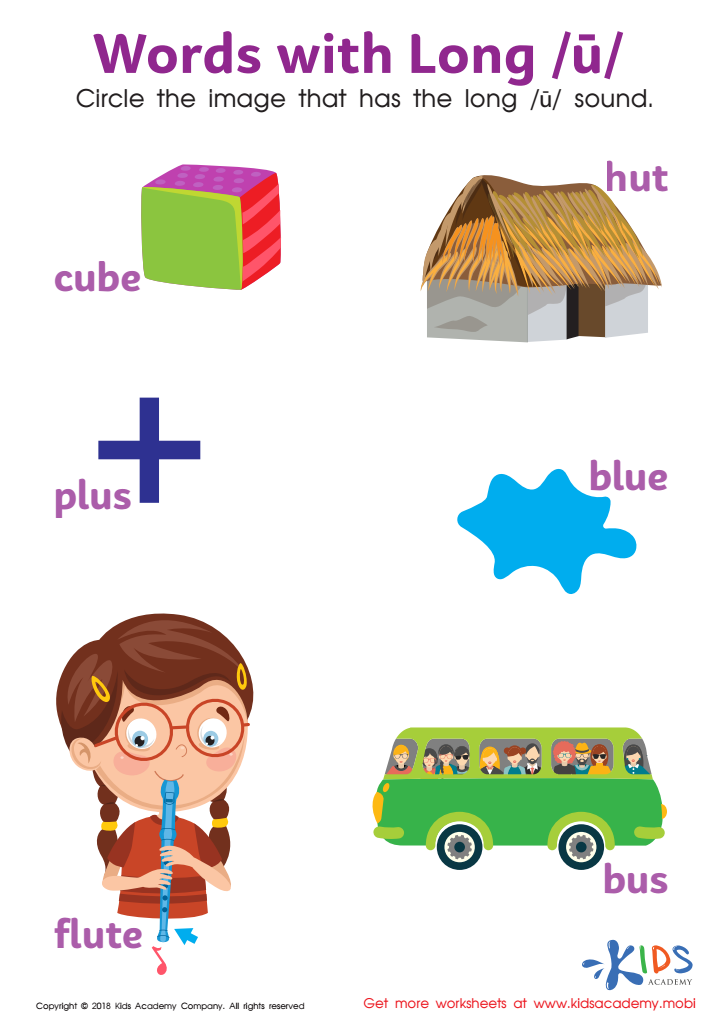

Words with Long U Reading Worksheet


Long and Short E Worksheet
Reading comprehension, including mastery of normal long vowels, is crucial for 4-year-olds because it lays the foundation for their literacy skills. At this age, children are rapidly developing their language and cognitive abilities; introducing long vowels helps them recognize and decode words with more complexity. Understanding long vowels is essential for building a solid reading trajectory as it enhances phonemic awareness—the ability to hear and manipulate sounds in words—that is vital for future reading success.
When parents and teachers engage children with reading comprehension activities focusing on long vowels, they also support their critical thinking skills. This not only makes reading more enjoyable but helps children make connections between text and their own experiences. Comprehension skills also promote increased vocabulary, allowing children to express themselves articulately.
Moreover, a strong foundation in reading can foster a love for books and independent learning, setting the stage for academic success. As children grow older, the ability to understand and discuss what they read becomes integral to their performance in all subjects. Therefore, an emphasis on normal long vowels in early literacy education should be a priority for parents and educators alike, as it promotes both academic achievement and lifelong learning habits.
 Assign to My Students
Assign to My Students





